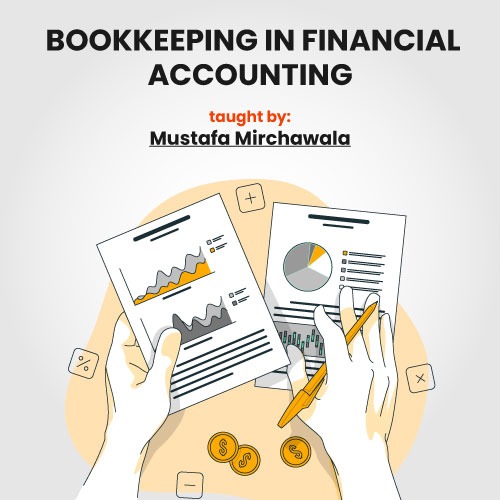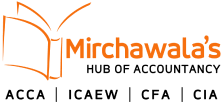What is Bookkeeping -financial accounting /f3
Bookkeeping
is the course of methodically recording, sorting out, and keeping up with monetary exchanges and data for a business or association. It is a basic part of bookkeeping and is fundamental for following the monetary strength of an organization, pursuing informed choices, and satisfying different lawful and administrative prerequisites.

Key parts of accounting include:
1. Recording Exchanges: Clerks report every single monetary exchange, like deals, buys, costs, and installments, in an efficient and coordinated way.
2. Twofold Section Framework: Accounting regularly follows the twofold passage bookkeeping framework, where each exchange has equivalent and inverse passages in something like two records (e.g., charge one record and credit another). This framework guarantees exactness and keeps up with the bookkeeping condition: Resources = Liabilities + Value.
3. Diaries and Records: Exchanges are at first kept in diaries, which are then summed up and presented on records. Diaries are sequential records of exchanges, while records bunch exchanges by accounts (e.g., cash, debt claims, creditor liabilities).
4. Preliminary Equilibrium: Occasionally, a preliminary equilibrium is ready to guarantee that charges equivalent credits. This is an essential check for mistakes in the bookkeeping records.
5. Fiscal reports: Accounting information is utilized to get ready budget summaries, for example, the monetary record, pay explanation, and income proclamation, which give bits of knowledge into an organization’s monetary position and execution.
6. Compromise: Clerks accommodate records to guarantee that the recorded exchanges match the genuine monetary movement. This incorporates bank compromise to contrast recorded bank exchanges and the bank proclamation.
7. Exactness and Consistence: Precise accounting is significant for charge revealing, monetary examination, and consistency with bookkeeping principles and guidelines. Mistakes or inconsistencies can prompt monetary issues and lawful issues.
8. Examining: In bigger associations, outside evaluators might audit the books to guarantee consistency with bookkeeping guidelines and guidelines and to give an autonomous appraisal of monetary exactness.
Accounting should be possible physically by utilizing diaries and records or with the assistance of bookkeeping programming, which streamlines and computerizes numerous parts of the interaction. Independent ventures might deal with their accounting, while bigger organizations frequently utilize proficient accountants or re-appropriate the assignment to bookkeeping firms.
9. Graph of Records: A diagram of records is an organized rundown of the relative multitude of records an organization uses to record monetary exchanges. Each record is doled out an extraordinary record number and falls into classes like resources, liabilities, value, pay, and costs. This graph gives a normalized system for coordinating monetary information.
10. Cash versus Accumulation Premise: There are two essential techniques for bookkeeping: cash premise and gathering premise. In real money premise bookkeeping, exchanges are recorded when money is gotten or paid. In gathering premise bookkeeping, exchanges are recorded when they happen, paying little mind to when money changes hands. Numerous organizations utilize the gathering premise to stick to bookkeeping standards and give a more precise image of their monetary well-being.
11. Charges and Credits: In twofold passage accounting, each exchange includes charges and credits. Charges are sections on the left half of a record, regularly addressing expansions in resources and costs or diminishes in liabilities and value. Credits are passages on the right half of a record, commonly addressing expansions in liabilities and value or diminishes in resources and costs.
12. General Record: The overall record is a focal storehouse where all monetary exchanges are recorded, coordinated, and summed up. It comprises of individual record that represents each fiscal summary thing and is the establishment for making budget reports.
13. Shutting Sections: Toward the finish of a bookkeeping period (e.g., a month or a year), shutting passages are made to reset income and business ledgers to nothing. This interaction guarantees that pay and business ledgers precisely mirror the outcomes for the period and read the books for the following time frame.
14. Devaluation: Deterioration is the efficient portion of the expense of a drawn-out resource (e.g., gear or a structure) over its valuable life. It assists in coordinating the cost of a resource with the income it creates after some time.
15. Insignificant Money: Frivolous money is a limited quantity of actual money kept close by to cover minor costs like office supplies or little buys. Appropriate recording and recharging of negligible money are fundamental to keeping up with exact records.
16. Bookkeeping Standards: Accounting and bookkeeping follow laid-out standards, including the Sound accounting standards (GAAP) in the US. These standards give rules for recording and announcing monetary data reliably and straightforwardly.
17. Monetary Programming: Numerous organizations use bookkeeping programming, like QuickBooks, Xero, or Sage, to smooth out accounting processes, computerize information sections, and produce monetary reports effectively.
18. Clerk versus Bookkeeper: While the expressions “clerk” and “bookkeeper” are some of the time utilized conversely, they perform various jobs. Clerks center around recording and coordinating monetary exchanges, while bookkeepers investigate monetary information, plan fiscal reports, give monetary exhortation, and frequently have further developed capabilities.
19. Accumulations and Deferrals: Gatherings include perceiving income or costs when they are procured or brought about, paying little mind to when money is traded. Deferrals, then again, include delaying the acknowledgment of income or costs until cash is traded. Understanding these ideas is significant for gathering bookkeeping.
20. Bank Compromise: Bank compromise is the most common way of coordinating the exchanges in an organization’s bookkeeping records with those on the bank explanation to guarantee they are predictable. Any errors are explored and settled.
21. Monetary Proportions: Accounting information is utilized to work out different monetary proportions, like the obligation to value proportion, current proportion, and profit from speculation (return for capital invested). These proportions give experiences into an organization’s monetary well-being and execution.
22. Stock Valuation: Appropriately esteeming stock is vital for exact monetary announcing. Strategies like Earliest in, earliest out (FIFO), Rearward In, First (LIFO), and Weighted Normal Expense are utilized to decide the expense of products sold and the benefit of residual stock.
23. Prepaid Costs and Gathered Liabilities: Prepaid costs will be costs paid ahead of time (e.g., insurance installments) and are slowly discounted over the long run. Gathered liabilities are costs that have been caused yet not yet paid (e.g., neglected wages) and should be perceived.
24. Not-for-profit Bookkeeping: Philanthropic associations have their extraordinary bookkeeping standards and necessities, zeroing in on reserve bookkeeping to follow confined and unhindered assets, awards, and gifts.
25. Worldwide Monetary Revealing Norms (IFRS): While GAAP is generally utilized in the US, IFRS is a bunch of bookkeeping principles embraced by numerous nations universally. Understanding the distinctions between these norms is essential for global organizations.
26. Tax collection: Accounting assumes a critical part in charge consistency. Organizations need to keep exact records of pay, costs, and derivations to work out and report their duty liabilities.
27. Inside Controls: Laying out interior controls is fundamental to forestall extortion and blunders in accounting. These controls incorporate isolation of obligations, endorsement cycles, and standard reviews.
28. Income Explanation: The income proclamation tracks the development of money into and out of a business over a particular period. It comprises working, money management, and supporting exercises and surveys an organization’s liquidity.
29. Materiality: Materiality is an idea that decides if a monetary exchange or mistake is sufficiently critical to influence fiscal reports. Material things ought to be uncovered in fiscal reports.
30. Review Trail: A review trail is an ordered record of all changes made to the monetary information in a bookkeeping framework. It keeps up with information honesty and gives a background marked by exchanges.
31. Combined Fiscal summaries: In situations where an organization has auxiliaries or interests in different elements, merged budget reports are ready. These assertions consolidate the monetary consequences of the parent organization and its auxiliaries into a solitary arrangement of fiscal summaries to give a thorough perspective on the gathering’s monetary exhibition.
32. Fair Worth Bookkeeping: A few resources and liabilities are estimated at fair worth, which addresses their fairly estimated worth at a particular moment. Fair-worth bookkeeping can be mind-boggling and includes occasional revaluation of resources and liabilities.
33. Complex Income Acknowledgment: In specific ventures, for example, programming or development, income acknowledgment can be perplexing. The acknowledgment of income might traverse numerous periods, include achievement-based charging, or require assessing the finishing of a task.
34. Leases Bookkeeping (ASC 842/IFRS 16): New bookkeeping norms, for example, ASC 842 in the US and IFRS 16 around the world, have impacted how leases are represented. They require the acknowledgment of rent liabilities and right-of-purpose resources.
35. United Fiscal Reports: In situations where an organization has auxiliaries or interests in different substances, merged budget summaries are ready. These assertions join the monetary consequences of the parent organization and its auxiliaries into a solitary arrangement of fiscal reports to give a complete perspective on the gathering’s monetary exhibition.
36. Fair Worth Bookkeeping: A few resources and liabilities are estimated at fair worth, which addresses their fairly estimated worth at a particular moment. Fair-worth bookkeeping can be complicated and includes occasional revaluation of resources and liabilities.
37. Complex Income Acknowledgment: In specific businesses, for example, programming or development, income acknowledgment can be perplexing. The acknowledgment of income might traverse numerous periods, include achievement-based charging, or require assessing the fulfillment of a task.
38. Leases Bookkeeping (ASC 842/IFRS 16): New bookkeeping norms, for example, ASC 842 in the US and IFRS 16 worldwide, have fundamentally altered how leases are represented. They require the acknowledgment of rent liabilities and right-of-purpose resources on the monetary record.
39. Unfamiliar Cash Exchanges: Organizations working universally frequently manage unfamiliar money exchanges. Representing these exchanges includes changing over unfamiliar cash adds up to the announcing money, which can be liable to conversion standard vacillations.
40. Fence Bookkeeping: Supporting includes utilizing monetary instruments to moderate the gamble of unfavorable cost developments in resources or liabilities. Support bookkeeping includes recording and announcing the adequacy of these supporting techniques.
41. Immaterial Resources: Elusive resources, like licenses, brand names, and generosity, can be trying to represent as their worth is frequently hard to decide and may require debilitation testing.
42. Complex Monetary Instruments: A few organizations utilize complex monetary instruments, for example, subsidiaries and organized items, which require particular bookkeeping information because of their perplexing nature.
43. Administrative and Public Area Bookkeeping: Government substances and public area associations have their bookkeeping principles and necessities, which can vary fundamentally from those in the confidential area.
44. Morals and Expert Norms: Moral contemplations assume a huge part in bookkeeping and accounting. Experts in the field are much of the time limited by moral codes and principles that guide their way of behaving and direction.
45. Criminological Bookkeeping: Legal bookkeepers work in examining monetary anomalies, misrepresentation, and monetary questions. They use bookkeeping standards and analytical methods to uncover monetary bad behavior.
46. Supportability Revealing: As ecological and social obligations become more significant, a few associations are presently integrating maintainability detailing into their monetary revelations to impart their natural and social effect.
CONCLUSION:
In conclusion, accounting and bookkeeping are principal parts of monetary administration, giving the establishment a cool-headed direction, monetary revealing, and administrative consistency in organizations and associations. Whether you’re simply beginning to find out about accounting or diving into cutting-edge bookkeeping ideas, it’s fundamental to comprehend the standards and practices included.
Accounting includes recording, sorting out, and keeping up with monetary exchanges, utilizing the twofold section framework, records, and diaries. Precise accounting is basic for making fiscal reports, following monetary well-being, and guaranteeing consistency with bookkeeping principles and guidelines.
Introduction to Bookkeeping course is the ideal starting point for future business leaders, accountants and entrepreneurs. You don’t need any previous knowledge of accounting. – ACCA global
As you advance in how you might interpret accounting and bookkeeping, you’ll experience more perplexing themes, for example, accumulation bookkeeping, monetary proportions, worldwide bookkeeping principles, and specific regions like not-for-profit bookkeeping and legal bookkeeping. These high-level ideas are fundamental for overseeing complex monetary activities, settling on essential choices, and tending to the extraordinary requirements of various ventures and areas.
-Written by shining student of Mirchawala’s Hub Of Accountancy
Uzair Chaudhry








[…] September 21, 2023 […]
Comments are closed.